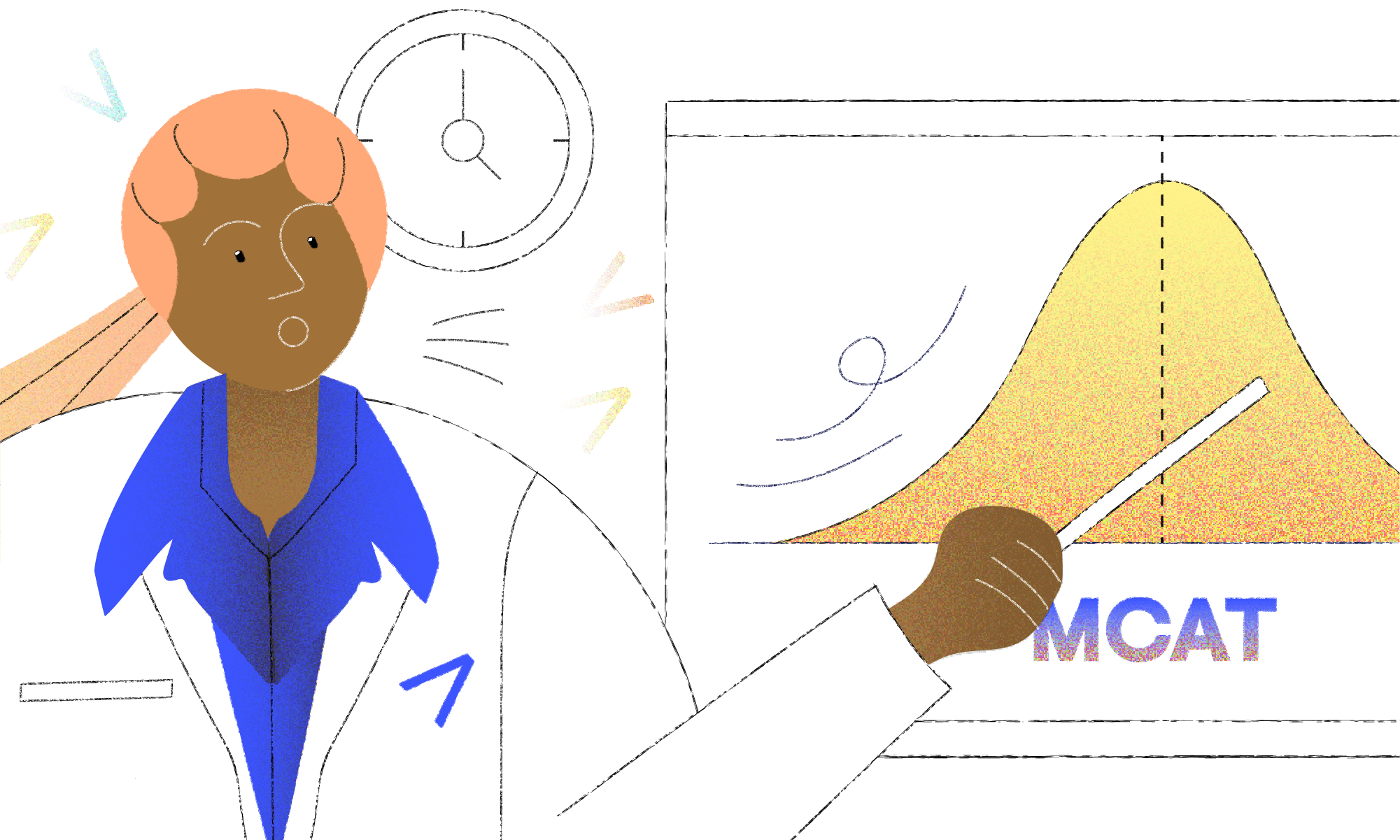
Conquer the MCAT Physics Section: Expert Insights and Study Tips
Is Physics on the MCAT?
In short, yes. Physics questions make up between 20-30 percent of the MCAT Chemistry/Physics section, one of four MCAT sections. There will be approximately 12-18, which is about 5-8% of the exam.
Worry not! You can ace the MCAT Physics Section with our expert insights and study tips! If you’ve been dreading the physics portion of the MCAT, fear no more. We’re here to equip you with the knowledge and strategies to conquer this challenging section.
From understanding complex concepts to tackling tricky problem-solving scenarios, our blog provides a comprehensive guide to help you excel. Our team of experienced MCAT tutors and physics enthusiasts have distilled their expertise into actionable advice to boost your confidence and sharpen your skills.
Get ready to unravel the mysteries of MCAT physics and pave your way to success. Let’s dive in and conquer the MCAT physics section together!
A Brief Overview of MCAT Physics
The physics MCAT section evaluates your understanding of fundamental physics concepts and their application to problem-solving scenarios. To conquer this section, it is essential to have a solid grasp of the key topics and concepts tested. Let’s explore these concepts in more detail:
Mechanics:
Mechanics encompasses the study of motion, forces, and energy. Topics within this category include Newton’s laws of motion, which describe how objects move in response to forces. You’ll encounter kinematics, which deals with the motion of objects without considering the forces involved.
Work, energy, and momentum are also important physics MCAT concepts, as they describe the transfer and conservation of energy and the relationship between force, mass, and acceleration.
Electricity and Magnetism:
This area focuses on the principles of electric and magnetic fields, circuits, and electromagnetic radiation. Understanding concepts such as voltage, which measures the electric potential difference; current, which is the flow of electric charge; and resistance, which opposes the flow of current, is crucial.
Additionally, you’ll encounter capacitance, which relates to the storage of electrical charge, and magnetism, which deals with the behavior of magnetic fields and their interaction with electric currents.
Waves and Optics:
Wave phenomena, interference, diffraction, and the properties of light fall under this category. Understanding concepts like wave behavior, which describes how waves propagate and interact with each other, is essential. Optics explores the behavior of light, including topics like reflection, refraction, and the formation of images by lenses and mirrors.
Thermodynamics:
Thermodynamics deals with energy transfer, heat, and the behavior of gases. Concepts like temperature, which measures the average kinetic energy of particles, and entropy, which describes the amount of disorder in a system. And heat transfer, which involves energy flow between objects, are essential.
Thermodynamic laws, such as energy conservation laws and the relationship between heat, work, and internal energy, are also key topics.
Fluids and Solids:
This category involves the study of fluid mechanics, buoyancy, and the behavior of solids. Understanding topics like pressure, which is the force exerted on a surface per unit area, viscosity, which relates to a fluid’s resistance to flow, and Archimedes’ principle, which explains buoyant forces, is necessary.
Additionally, studying the behavior of solids, including elasticity, which describes how solids deform under stress, is essential.
Atomic and Nuclear Phenomena:
Atomic structure, nuclear reactions, radioactivity, and particle physics are covered here. Familiarity with concepts like isotopes, atoms of the same element with different numbers of neutrons, half-life, the time it takes for half of a radioactive substance to decay, and fundamental particles like protons, neutrons, and electrons are crucial.
To excel in the MCAT physics section, dedicate ample time to understanding these core concepts. Additionally, practice applying them to different problem-solving scenarios. A solid foundation in these topics will enable you to tackle complex MCAT physics questions confidently.
Remember, thoroughly understanding the tested concepts and their application is the key to conquering the MCAT physics section.
Study Tips for MCAT Physics
Effective study habits and strategic test-taking approaches are essential to excel in the MCAT physics section. Here are some valuable tips and strategies tailored explicitly for mastering MCAT physics:
Effective Study Habits
Create a Study Schedule: Develop a structured study plan that allocates dedicated time for physics review and practice. Divide your study sessions into manageable blocks to maintain focus and avoid burnout.
Balance Content Review and Practice: While the content review is essential, ensure you allocate sufficient time for solving MCAT Physics practice questions and simulated exams. This approach will help you apply your knowledge, identify weak areas, and improve your problem-solving skills.
Test-Taking Strategies
Prioritize Time Management: The MCAT physics section is time-sensitive, so practice managing your time effectively during practice exams. Learn to gauge how much time to allocate for each question to ensure you complete the section within the given time.
Understand the Question Format: Familiarize yourself with the structure and format of MCAT physics questions. Use keywords, figures, and graphs, as they often contain valuable clues and information.
Employ Process of Elimination: When confronted with challenging multiple-choice questions, use the process of elimination to narrow down your options. Eliminate the incorrect choices to increase your chances of selecting the correct answer.
Work on Test Anxiety: Develop relaxation techniques and strategies to manage test anxiety. Practice deep breathing exercises and positive affirmations to help you stay calm and focused during the exam.
By implementing these study tips and strategies, you’ll be better equipped to confidently tackle the MCAT physics section.
In a Nutshell
With our expert insights and study tips, you now have the tools to conquer the MCAT physics section. You can excel in this challenging area by understanding key concepts, employing effective study habits, and utilizing test-taking strategies.
Prepare for MCAT with confidence and approach the exam with a strategic mindset. Success awaits as you apply your newfound knowledge and skills to achieve your goals in the MCAT physics section.
FAQs:
→ How can I improve my problem-solving skills for MCAT physics?
Enhancing problem-solving skills requires practice. Focus on understanding the underlying principles, practice analyzing questions, and learn to apply the relevant concepts to arrive at the correct answer. Reviewing and learning from your mistakes is also crucial for improvement.
→ Can I use a calculator during the MCAT physics section?
Yes, the MCAT provides an on-screen calculator for certain questions. However, it’s essential to be comfortable performing calculations without relying solely on the calculator to save time during the exam.
→ How should I approach experimental-based questions in MCAT physics?
For experimental questions, carefully analyze the provided data, figures, and graphs. Identify the relevant variables and relationships to deduce the correct answer. Pay attention to units and logically connect the data and the concepts being tested.
→ Are any physics concepts frequently tested on the MCAT?
Yes, certain concepts like kinematics, forces, circuits, optics, and thermodynamics are commonly tested in the MCAT physics section. Devote extra time and focus on understanding these topics thoroughly.
→ Can I rely solely on content review, or should I also practice with MCAT physics-style questions?
Both content review and practice with MCAT-style questions are crucial for success. Content review builds your foundational knowledge, while practice questions help you apply that knowledge and become familiar with the exam format.
→ Is it better to study MCAT physics independently or seek assistance from a tutor?
It depends on your learning style and preferences. Some students find success through self-study using resources like textbooks and online materials. However, others benefit from the guidance of an experienced MCAT physics tutor who can provide personalized instruction and address specific areas of difficulty.








Was this article helpful?
Still got a question? Leave a comment